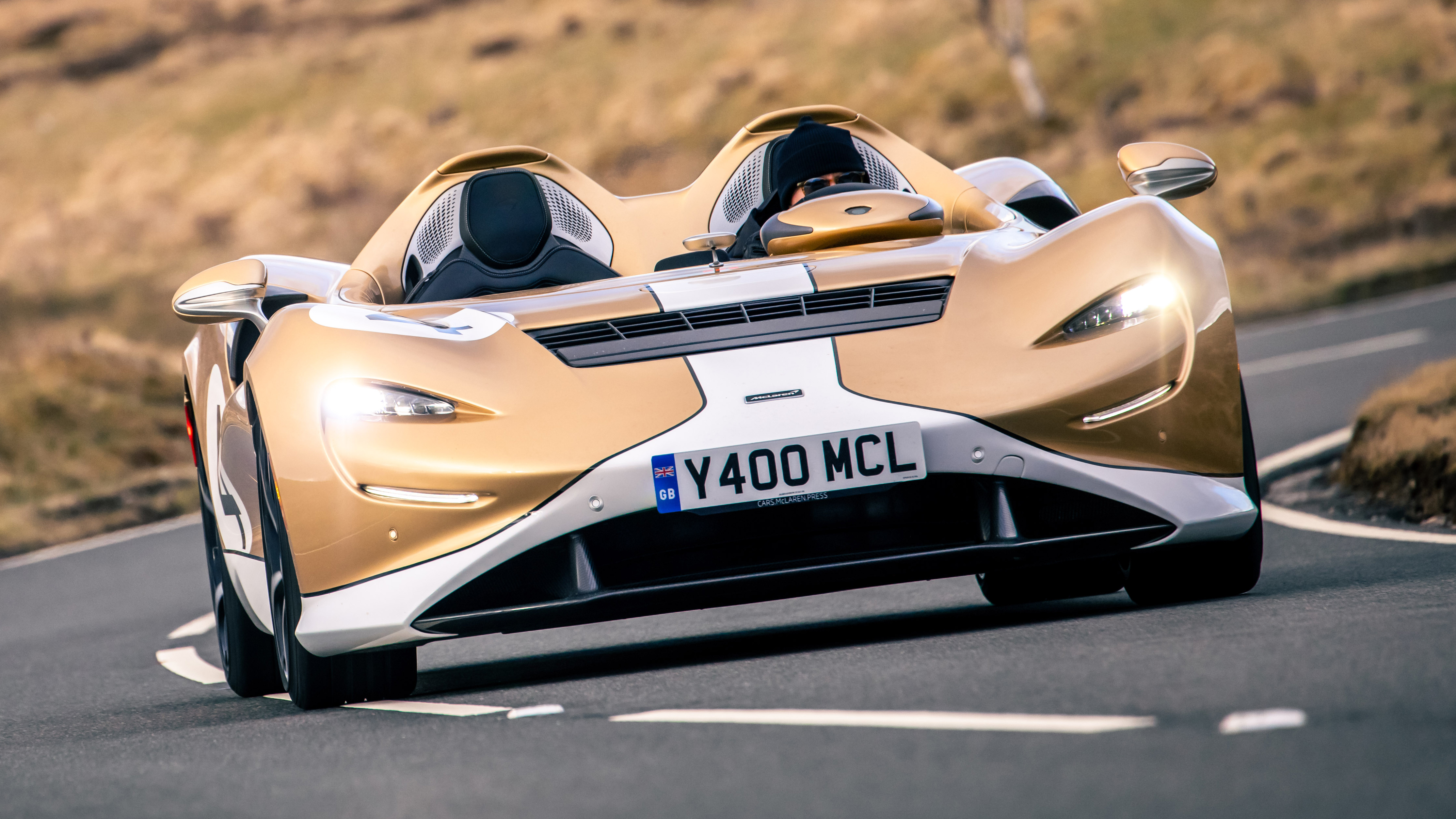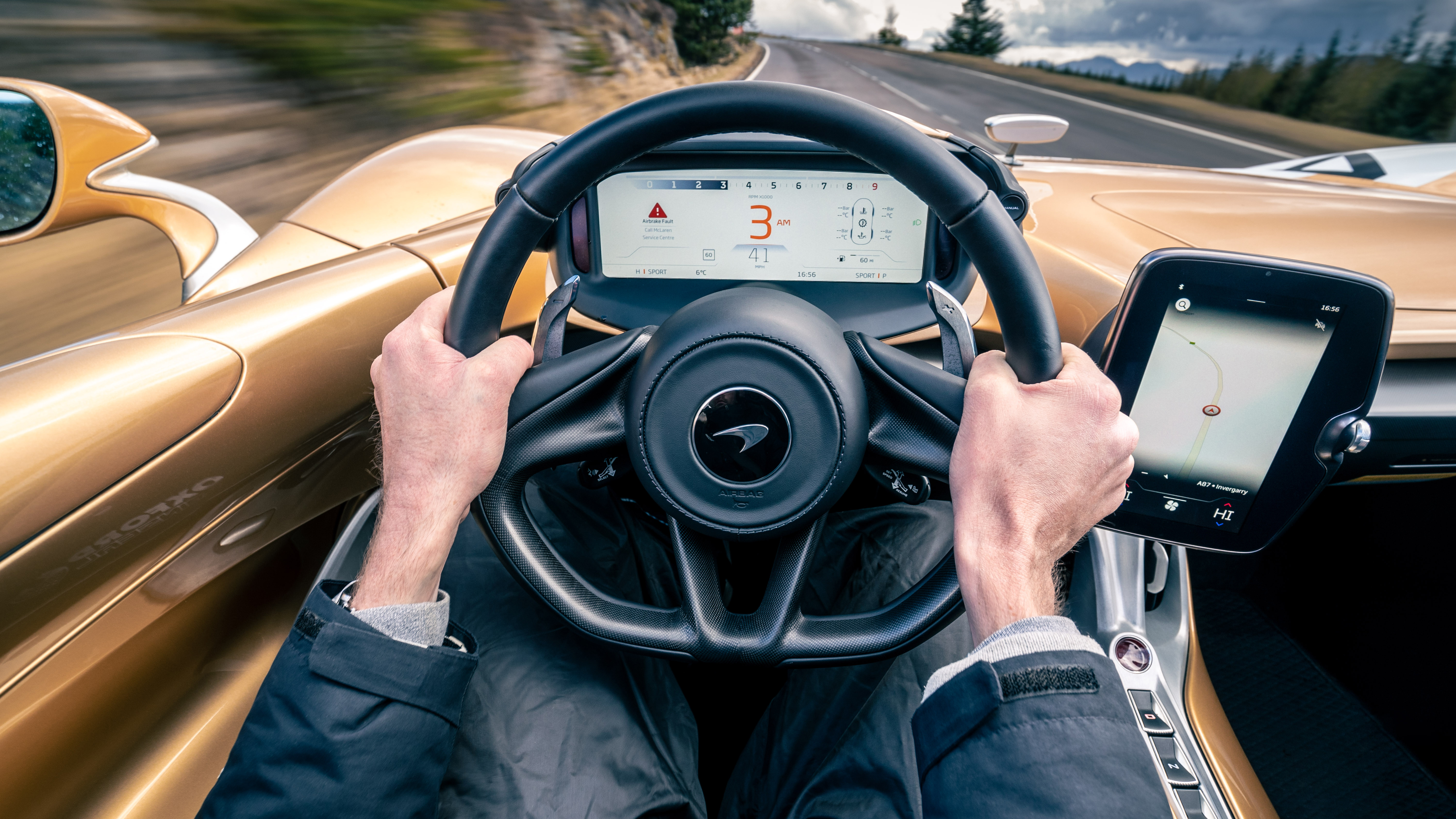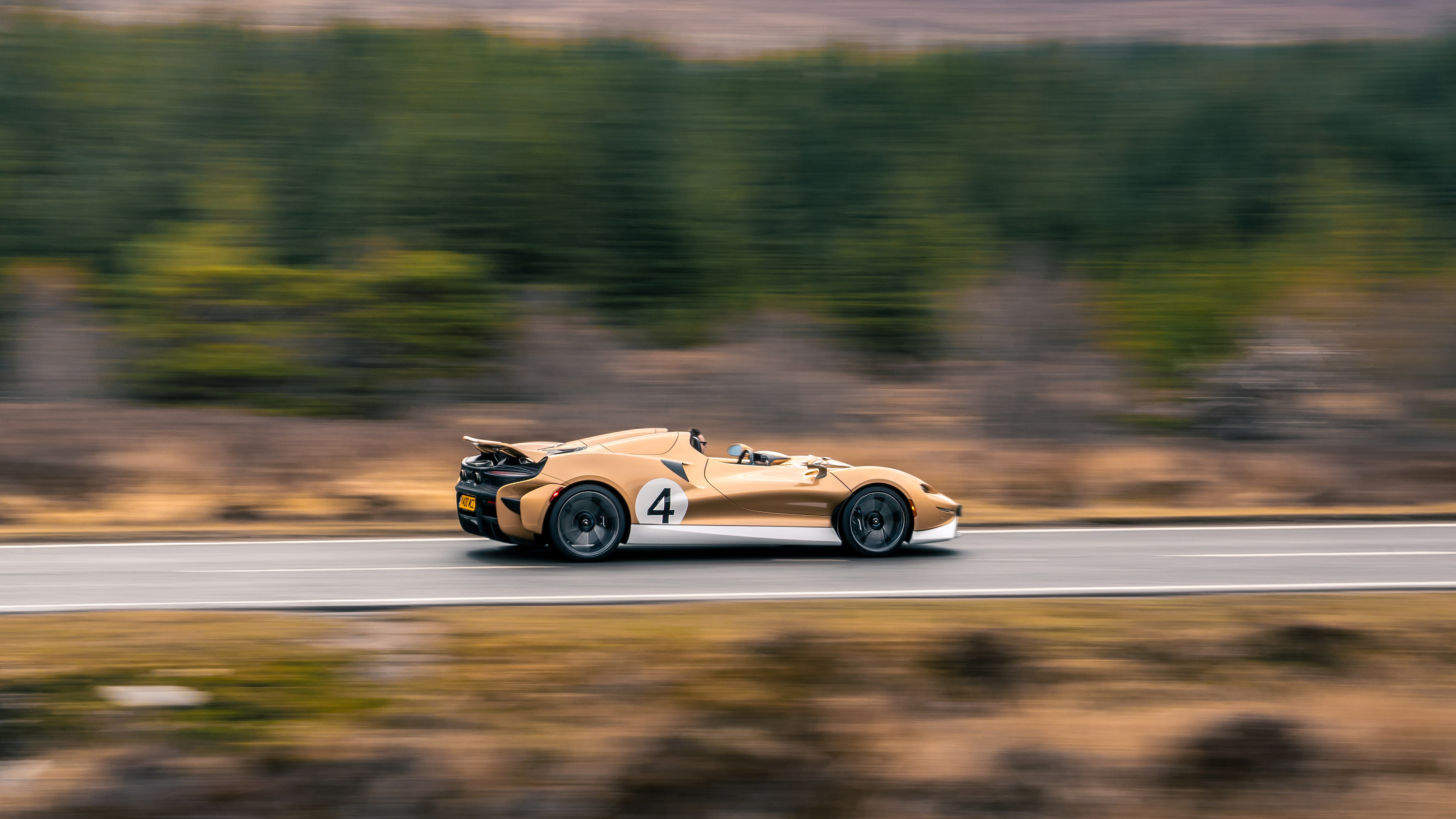
McLaren Elva review
Interior
What is it like on the inside?
Unlike the Ferrari Monza, there’s no awkward sill perch and leg swing necessary to get into the Elva. Simply let the gas struts send the weightless door skyward, step in and let your arse fall into the seat. But that is where the weirdness of the driving experience starts.
With no windscreen and roof, it’s odd as even when you're inside, you’re still outside. Something McLaren has played on as the exterior panels cascade into the cabin so there’s no clear border between cockpit and landscape. It plays with your mind a bit. In a good way, like cleaning your teeth with your opposite hand.
McLaren designed new seats with a smaller squab for the Elva so you can access the footwell more easily and get leave without showing the paparazzi your undercracker's gusset. However, they’re not as nearly as supportive and cosseting as the carbon ones you get in the Senna, 765LT and 600LT and you sit up and out of the cabin more than other speedsters, especially Aston’s where you feel like you’re about to be buried in a Victorian bathtub. The seats also operate on a new rocker that simultaneously lower and recline, or raise and bring you forward while the instrument binnacle moves as one with you.
Around the cabin there’s familiar McLaren switchgear and a small vertical screen, for controlling things like the heater, sat-nav, music and, more importantly, 15-level drift control. Aware that even the richest people in the world can’t control the weather, ‘Ultrafabric’ materials protect the cabin and those unique carbon fibre seats when the skies decide to open.
Where McLaren has tried something new is with the active panel. Where both chassis and engine modes used to be on switches buried at the bottom of the dash, they’re now accessed via a tilting toggle on either side of the pod on the binnacle behind the steering wheel. These rocker switches are a finger’s stretch from the steering wheel and apparently inspired by jet fighters HOTAS (hands on throttle-and-stick) mentality.
However, they lack the experience of the old switchgear. They feel rubberized and laggy in their execution where you want something to feel like you’re really ratcheting up the mental. Which you are by putting the drivetrain into maximum attack. You want more haptic clarity that you’re going into a scary place that might end with you having a face full of hedgerow.
Featured

Trending this week
- Car Review
BMW 1 Series
- Top Gear's Top 9
Nine dreadful bits of 'homeware' made by carmakers






